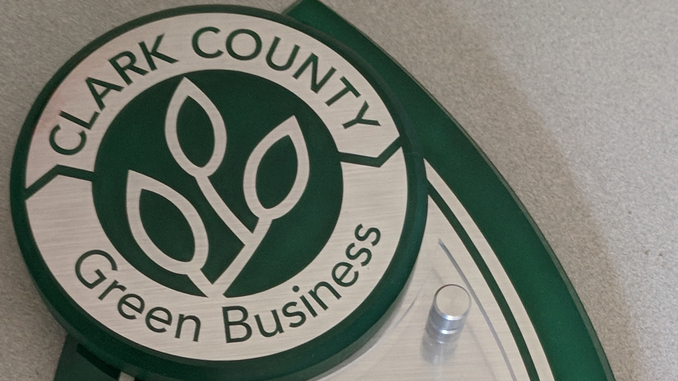What happens to the hazardous materials produced on campus?
From chemicals produced in labs to old projector bulbs, WSU Vancouver generates thousands of pounds of waste each year that cannot simply get tossed in a landfill. As if disposing of dangerous materials isn’t challenging enough, the process to get rid of this waste is much more nuanced than one might think.
WSU Vancouver research labs store dangerous waste in the satellite accumulation areas until campus facilities operators can safely bring the waste to the central accumulation area. “The central accumulation area is in a building built specifically for the purpose of housing and containing waste in segregated spaces until it can be safely removed from campus” explains Associate Vice Chancellor for Facilities Services, Bill Hooper. “The accumulation area has double containment, dedicated HVAC [heating, ventilation and cooling] services and is staffed by our Environmental Health & Safety personnel.”
The Department of Ecology permits WSU Vancouver to have 2250 pounds of waste in a 180-day period. All waste is thoroughly recorded as it enters the central accumulation area to ensure scheduling a waste pickup prior to the 2000 pound generation. The school utilizes the waste disposal company Clean Harbors to pick up the waste, after which it is typically taken to a landfill and burned.
There are two broad categories of waste; dangerous and universal. According to Price, dangerous waste, also referred to as “hazardous waste” in other regions, consists of flammable, toxic, corrosive, explosive and radioactive materials. WSU Vancouver only generates flammable, toxic and corrosive waste. Environmental Health and Safety also handles universal waste; waste that is not considered dangerous, but also cannot be in a landfill. Examples of universal waste include batteries, light bulbs and toner cartridges.
Stericycle is the company responsible for the removal of the needle disposal containers found on the walls of some bathrooms around campus. These disposal containers exist for people with illnesses, such as diabetes, to have a safe place to dispose of their needles. Every night when the campus bathrooms are cleaned the custodial staff check the disposal container to see if it is full. Once filled, the container is removed and secured with a tamper proof lid and taken to the Environmental Health & Safety office. A new container is then added in its place. Old needle disposal containers are never reused.
Due to the challenge of estimating the generation of sharps waste (such as needles) Environmental Health and Safety teamed up with the Student Health Services, who already had a Stericycle account, to simplify things. Joe Price, WSU Vancouver industrial hygienist, coordinates the removal of campus waste. “If we generate any waste that we give to them, we basically pay our proportion of that,” Price says, “So it doesn’t come out of the student budget at all.”
Departments such as neuropsychology also generate sharps waste, however the purchasing of disposal containers as well as the disposal itself is paid for by the lab’s grant.
Clark County awarded WSU Vancouver a plaque of recognition for Green Business. WSUV proudly recycles everything that can be. “They looked at everything from waste recycling to hazardous waste management, to groundskeeping to […] energy efficiency,” explains Price, who helped coordinate the review with WSU Vancouver Sustainability Committee Chairwoman, Dawn Freeman. The WSU Vancouver campus operates as efficiently as possible, with a lot more going on behind the scenes than students may be aware of.
